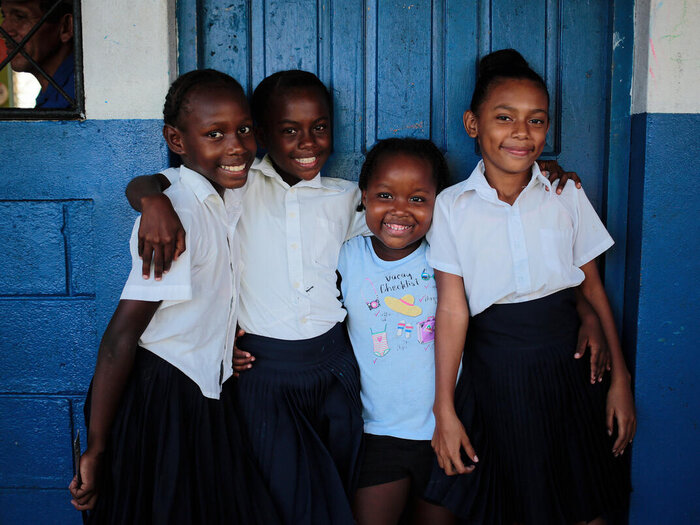Nicaragua
- 64.5%
- of people work in agriculture
- 24.9%
- of people live in poverty
- 126 out of 191
- in the 2022 Human Development Index
Nicaragua is a low-income, food-deficit country, and one of the poorest in Latin America. Agriculture, the primary economic activity, constitutes almost 64.5 percent of the population and contributes 8.1 percent of the country's GDP.
Food insecurity is linked with poverty, exacerbated by the effects of the climate crisis. Almost 25 percent of families in the country live in poverty and over 8 percent struggle in extreme poverty, surviving on less than US$1.25 per day.
Nicaragua is vulnerable to recurrent hazards such as droughts, hurricanes, floods and earthquakes – all of which undermine progress in addressing poverty and food insecurity.
The World Food Programme (WFP) has been present in the country since 1971. Our programmes support food security and nutrition, livelihoods restoration and sustainable access to markets, while working to build resilience in food-insecure households and their communities. WFP Nicaragua also aims to strengthen institutional capacity in disaster risks management, social protection and food systems.
What the World Food Programme is doing in Nicaragua
-
Promoting social protection for school feeding
-
The national school feeding programme is the largest social safety net in Nicaragua. WFP supports it by providing daily nutritious hot meals to 182,000 children in 2,500 schools in Jinotega and in the North Autonomous Region of the Caribbean Coast – mostly inhabited by indigenous groups. WFP also buys fresh food from local smallholder farmers and helps improve schools infrastructure to enable storage, preparation and consumption of the meals.
-
Building climate and economic resilience for smallholder farmers
-
WFP provides a comprehensive package of interventions – including a strong gender-transformative approach – to women and men in farmers’ associations. In this way, they can adapt to the climate crisis and gain access to government and private-sector markets to sell their produce. Nicaragua is the first country in Latin America to implement risk insurance, for example helping farmers, their communities, livelihoods and ecosystems become resilient.
-
Emergency response and early recovery to restore livelihoods
-
During and after emergencies, WFP provides people with food and non-food packages, take-home rations and cash-based transfers to recover their livelihoods. Schools have become a perfect platform to deliver emergency response: a second hot meal is provided to schoolchildren as well as a take-home ration for their families. WFP also supports the Government in collecting food-security data and providing technical assistance in disaster risk reduction and management.
-
Country capacity strengthening
-
WFP works with national institutions to strengthen the knowledge and skills of public servants, enabling them to design and implement programmes with a gender, nutrition and risk-prevention focus. WFP is also working with the Government in the design and roll-out of a home-grown school-feeding pilot.
-
Service provision on-demand
-
WFP is a lead agency in supply chain and facilities services, including procurement, transport and logistics operations, and technology and telecommunication services At WFP’s Humanitarian Centre in Bilwi, North Caribbean Coast, humanitarian organizations prepare for and respond to emergencies.
Nicaragua news releases
Go to pagePartners and Donors
Find out more about the state of food security in Nicaragua
Visit the food security analysis pageOperations in Nicaragua
Contacts
Office
Edificio COBIRSA, 3er. piso, kilómetro 6 1/2 Carretera a Masaya, contiguo a Edificio Claro Nicaragua
Nicaragua

